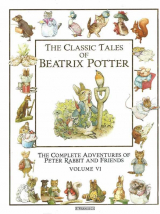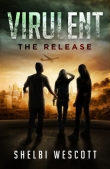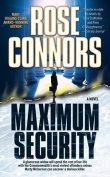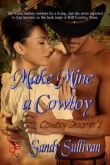
Текст книги "The Classic Tales. Volume VI"
Автор книги: Beatrix Potter
Жанр:
Сказки
сообщить о нарушении
Текущая страница: 8 (всего у книги 12 страниц)

CHAPTER XIV
Demerara Sugar
Upon fine days in spring the parrot’s cage was set out of doors upon top of the garden wall, opposite the farmhouse windows. In the intervals of biting its perch and swinging wrong-side up, the parrot addressed remarks to the poultry in the yard below. The words which it uttered most frequently in the hearing of those innocent birds were, “Demerara sugar! demerara sug! dem, dem, dem, Pretty Polly!” The chickens listened attentively.
When the chickens were feathered, they were taken to live in a wooden hut on wheels in the stubble field. They picked up the scattered grain; and grew into fine fat pullets. In autumn the farmer talked of taking the hen-hut home. But he was busy with other work; he delayed till winter.
In the night before Christmas Eve there came a fall of snow. When Tappie-tourie looked out next morning the ground was white. She drew back into the hut in consternation. Then Selina Pickacorn and Chucky-doddie looked out. None of them had ever seen snow before; they were April hatched pullets without a single experienced old hen to advise them.
“Is it a tablecloth?” asked Chucky-doddie. They knew all about tablecloths because they had been reared under a hen-coop on the drying green. They had been scolded for leaving dirty foot-marks on a clean tablecloth which was bleaching upon the grass.
The hens slid nervously down the hen ladder on to the snow. No; it was not a tablecloth. Said Tappie-tourie, “I’ll tell you what! I do believe it is the parrot’s demerara sugar!” (Now the parrot ought to have told them that demerara sugar is not white.) Selina Pickacorn tasted a beakful. “It is nothing extra special nice; he need not have talked so much about it.” “How horribly cold and wet it feels.” Just then the farmer came into the field with a horse and cart. He drove the hens back into the hut, fastened the door with a peg, and tied the hut behind his cart with a rope in order to drag it homewards through the snow.
The hen-hut did not run smoothly; it had a tiresome little waggling wheel at one end, that caught in ruts. It bumped along; and the pullets inside it cackled and fluttered. Before the procession had got clear of the field – the hut door flew open. Out bounced Tappie-tourie, Chucky-doddie, Selina Pickacorn, and five other hens. The farmer and his dog caught five of them, none too gently. But the three first-named birds flew back screaming to the spot where the hen-hut had stood originally, before it had been removed.
The farmer was obliged to leave them for the present.
Tappie-tourie, Chucky-doddie, and Selina wandered around in the snow; the field seemed very large and lost under its wide white covering. “The hut is gone,” said Tappie-tourie, with a brain wave. “That is so,”agreed Selina Pickacorn, “we fell out of the hut.” “What shall we do?”asked Chucky-doddie. “I see nothing for it but a Christmas picnic,” said Tappie-tourie; “here is sugar in plenty, but where is the tea and bread and butter?”
Large flakes of snow commenced to fall. “Perhaps this is the bread and butter coming,” said Tappie-tourie, looking up hopefully at the darkening sky. “My feather petticoat is getting so wet,” grumbled Chucky-doddie; “let us try to walk along the top of that wall, towards the wood.” The wall had a thick white topping of snow; it proved to be a most uncomfortable walk, with frequent tumblings off. They crossed Wilfin Beck on a wooden rail. The water below ran dark and sullen between the white banks. By the time they had reached the wood it was dusk; for the last hundred yards the hens had been floundering through snowdrifts. “If this is a Christmas picnic – it is horrid! Let us get up into that spruce tree, and roost there till morning.” They managed to fly up. They perched in a row on a branch, fluffing out their feathers to warm their cold wet feet. They were one speckled hen and two white hens; only the white hens looked quite yellow against the whiter snow. “The picnic is a long time commencing,” said the speckled hen, Tappie-tourie. It was soon black as pitch amongst the spreading branches of the spruce.
Down below in the glen the waters of the stream tinkled through the ground ice. Now and then there was a soft rushing sound, as the wet snow slipped off the sapling trees that bent beneath its weight, and sprang upwards again, released. Far off in the woods, a branch snapped under its load, like the sound of a gun at night. The stream murmured, flowing darkly. Dead keshes, withered grass, and canes stood up through the snow on its banks, under a fringe of hazel bushes.
Between the stream and the tree where the hens were roosting, there was a white untrodden slope. Only one tree grew there, a very small spruce, a little Christmas tree some four foot high. As the night grew darker – the branches of this little tree became all tipped with light, and wreathed with icicles and chains of frost. Brighter and brighter it shone, until it seemed to bear a hundred fairy lights; not like the yellow gleam of candles, but a clear white incandescent light.
Small voices and music began to mingle with the sound of the water. Up by the snowy banks, from the wood and from the meadow beyond, tripped scores of little shadowy creatures, advancing from the darkness into the light. They trod a circle on the snow around the Christmas tree, dancing gaily hand-in-hand. Rabbits, moles, squirrels, and wood-mice – even the half blind mole, old Samson Velvet, danced hand-in-paw with a wood-mouse and a shrew – whilst a hedgehog played the bagpipes beneath the fairy spruce.
Tappie-tourie and her sisters craned forward on their branch. “Is the Christmas picnic commencing? May we fly down and share it? Shall we, too, join the dance?” They slid and sidled forward, shaking down a shower of melting snow and ice. “Cluck, cluck!” cackled the hens, as they clutched and fluttered amongst slippery boughs.
The lights on the Christmas tree quivered, and went out. All was darkness and silence. “I’m afraid the Christmas picnic was only a dream; we shall have to roost here till morning.” “Hush! sit still,”said Tappie-tourie, “it was not us that frightened them away. Something is stirring near the stream! What is it?” The moon shone out between the clouds, throwing long shadows on the snow; shadows of the hazels and tall keshes. A little figure, questing and snuffling, came out into the moonlight: a small brown figure in a buttoned-up long coat. He examined the footsteps on the snow round the Christmas tree. Then, horrible to relate! he came straight up the snowy slope and stood under the spruce; looking up at the hens. He was a disagreeable fusky musky person, called John Stoat Ferret. (At this point Charles thought it necessary to apologize to Jenny Ferret who was knitting on the caravan steps. She accepted the apology in good part, and said of course she was not answerable for disagreeable relations – a horrid fusky musky smelly relation, with short legs, and rather a bushy tail.) First he tried to climb the tree, but he could not do so. Then he cried, “Shoo! shoo!” and threw sticks at the hens. And then he butted against the tree, and tried to shake them down. They clung, cackling and terrified, in the boughs high over head.
Then John Stoat Ferret thought of another plan; he determined to make them dizzy. He set to work. He danced. It was not at all nice dancing. At first he circled slowly; very, very slowly; then gradually faster, faster, faster, until he was spinning like a top. And always a nasty fusky musky smell steamed upwards into the tree. Tappie-tourie, Chucky-doddie, and Selina Pickacorn, overhead, watched him. They had left off clucking; they watched him in fascinated terrified silence, craning over their branch. And still he spun round and round and round, and the fusky smell rose up into the spruce. Tappie-tourie twisted her head round, following his movements as he danced. And Chucky-doddie twisted her neck round. And Selina Pickacorn not only twisted her head, she began to turn round herself upon the branch. All the hens were growing giddy.
John Stoat Ferret danced and spun more furiously, the fusky musky smell rose higher. All three hens commenced to turn round dizzily. In another minute they would fall off. John Stoat Ferret capered and twirled. But all of a sudden he stopped. He sat up, motionless, listening. Voices were approaching up the cart road that skirts the wood.
Upon Christmas Eve it is a pleasant custom amongst the Big Folk for carol singers to go singing from farm to farm; even to the lonely cottages on the outskirts of the great woods.
Two small boys, who had been out with the carollers, were going home to supper. Their Christmas picnic had been more prosperous than poor Tappie-tourie’s. Their pockets were full of apples and toffy and pennies.
“George,” said Jimmy, “give us a ginger snap.”
“Na-a!” said George, “it will gummy your teeth tegidder, that you cannot sing. Whooop!” shouted George, jumping into a snowdrift, “sing another—
“Wassail, wassail! to our town!
The bowl is white, and the ale is brown;
The bowl is made of the rosemary tree, and so is the ale, of the good barlee.
Little maid, little maid, tirl the pin!
Open the door, and let us come in!”
John Stoat Ferret listened intently. “Whooop!” shouted Jimmy, kicking the snow about, and swinging his candle lantern; “sing another one—
“Here us comes a wassailing, under the holly green,
Here us comes a wandering, so merry to be seen.
Good luck good Master Hodgin, and kind Mistress also,
And all the little childer that round the table go!
Your pockets full of money, your cupboards of good cheer,
A merry Christmas, Guizzards, and a Happy New Year!”
“Jimmy!” exclaimed George suddenly, “I smell stoat. Look over the wall with the lantern.” John Stoat Ferret departed hurriedly. And as if a spell were broken, Chucky-doddie, Tappie-tourie, and Selina found their voices. They cackled loudly, up in the tree. “Eh, sithee!” said George,“them’s our three hens that father lost out of t’ hen-hut. Fetch ‘em down: I’se haud lantern.” “This wall’s gaily slape!” giggled Jimmy, balancing himself on the slippery top stones. He reached up into the tree, and got hold of Tappie-tourie first, by the legs. “Ketch!” said he, and flung her out into the snowdrift in the lane. “Here’s another fat ’un!” He threw Chucky-doddie across. Selina flew after them of her own accord. The boys picked the hens out of the snow, and trudged homewards; George, with a hen tucked under each arm; and Jimmy, with one hen and the candle lantern. It was an inglorious ending to Tappie-tourie’s Christmas picnic; but at one time it looked like ending much worse – “very much worse, Cluck-cur-cuck-cuck-cluck!” said Charles the cock.
Sandy looked thoughtful. “Was the parrot an elderly bird?” “Very aged by his own account, if truthful,” replied Charles.
“I wonder whether he was the same parrot who had an adventure with a hawk, long ago. The parrot, which I am referring to, belonged to Squire Browne of Cumberland. The Squire also had a chestnut cob on which he went out riding; and he employed an old groom-gardener, named John Geddes. When Squire Browne came downstairs on fine mornings, he called through the open staircase window to John Geddes in the stable-yard. He said, ‘I’m riding today, John Geddes!’ Then he scratched the parrot’s head, and read the newspaper, and had breakfast.
“Now the parrot was so tame that he was allowed to come out of his cage; and one day he was waddling about on the lawn, when – shocking to say – a large hawk swooped down from the sky, and seized poor Polly in its claws. The hawk rose into the air, over the house and stable-yard; and the parrot, looking down for the last time at its home, saw the old groom-gardener sweeping with the yard broom. ‘I’m riding today, John Geddes!’ shouted Polly. Whereupon the hawk was so startled that it let go the parrot, who skimmed downwards from the clouds to safety.”
“Cuck, cuck, cluck! I think I have heard that anecdote before,” said Charles. “Possibly,” replied Sandy, bristling up his moustache,“possibly. But Squire Browne’s parrot was the first one it happened to.”Xarifa intervened hastily, in the cause of peace, “Was it not Miss Browne, a very, very old lady, who told us the story?” “It was,” said Sandy, eyeing Charles, the cock. “And did she not tell us other pretty stories?” continued Xarifa, “the story of the fairy clogs; and that pretty tale about the water-lilies? How they went adrift and sailed away, along the lake and down the river? In each water-lily flower was a fairy sitting, with golden curls, in the white lily flowers; and a fairy in green, on each broad round leaf, rowing with oars made of rushes?” “What was the end of that story, Xarifa?” asked Tuppenny. “Unfortunately, I do not remember. I don’t think it had any end; or else I fell asleep.”


CHAPTER XV
Pony Billy’s Search
Whilst Sandy and the poultry were entertaining each other in the orchard, Pony Billy, saddled and bridled, trotted away in search of the truant Paddy Pig. He passed in front of the farmhouse windows, clink! clink! went his shoes on the cobblestones in the yard. Mrs. Hodgson darning stockings in the sunny window-seat looked up and listened. Nothing could she see; she threaded her needle in and out, out and in, through the stocking foot. Pony Billy passed by the sweet-smelling wallflowers in the old-fashioned garden, where beehives, all a-row, stood on a deep stone shelf of the wall that faced the sun. The bees were stirring busily after their drowsy winter’s sleep. He came along a cart-track, and through a gate, on to the public road. Little sunshiny whirly winds had powdered white dust upon the king cups under the hedge; belated March dust in April. The cows looked over the hedge at Pony Billy. Said White-stockings to Fancy, “There goes a brave little saddle pony! Look how proudly he arches his neck, and tosses his cunning head! See the brass lockets glittering in the sun, and the stirrup irons, and the saddle leather. Look at his long flowing tail; and how gaily he picks his steps! He lifts his feet as prettily as Merry-legs or Cricket, who won the prize at Helsington. Where is he trotting to, think you?”said Buttercup Cow to Nancy. Pony Billy trotted along. It was dinner time with the Big Folk. He met nobody except old Quaker Goodman, jogging leisurely homeward in a low two-wheeled tub. The fat Quaker pony could see Pony Billy in spite of fern seed; it swerved across the road to leave him room to pass. Old Mr. Goodman laid his whip very gently along the ribs of the fat pony, as it were patting her with the handle of the whip, “What Daisey! Why, Daisey? What is thee shying at, Daisey? Tch-tckk-tckk!” Staid iron-gray Daisey plodded steadily on; her thick bob-tail swung from side to side.
Horses can see things where the Big Folk can see nothing – nothing but a silly white stone, or a stump on the roadside bank. But horses can see. So likewise can little young children. Two toddling youngsters at play in the dust caught a fleeting glimpse of the fairy pony; they prattled baby talk, and clapped their dirty chubby hands. Pony Billy breasted the hill at a canter; he slackened his pace to a walk as he came along over the croft. He pricked his ears and looked down at the village. The Big Folk were all indoors at dinner. Maggret, the Codlin Croft mare, dozed under the pent-house at the smithy. Farmer Hodgson was gossiping at the inn, whilst he waited for the blacksmith.
Pony Billy came down the croft at a quick, high-stepping trot; his brass lockets shone in the sun; his bright eyes sparkled. He hailed the smithy with eager neighings, “Hinny ho! Mettle! Bellows and shoes, Mettle! Hinny ho!”
Out came Mettle, barking; a hard-haired yellow terrier, wearing a little leather apron, “Good-day to you, Pony Billy! So the caravan is round again? What can I do for you this time? Another hoop? Another new circus trick?” “I wish to have my shoes removed and put on backwards.” “Certainly; four removes; we will soon have them off,” said Mettle, “it does not sound very comfortable; but just as you please. I will blow up the fire (c-r-e-a-k, puff; Mettle leaned upon the handle of the bellows, c-r-e-a-k, puff, puff), they will require a little fitting. (Mettle turned the shoe upon the hearth amongst the small hot coal, puff, puff.) I will take it out in tickets; and treat our smithy cat to an outing (puff, puff!). I owe her one. I pulled her tail. She did scratch me (puff, puff)! Why did I do it? (C-r-e-a-k, puff, puff!) I did it because she was black. I thought she was a stray black cat! She went up the chimney tortoise-shell and white, and she came down black! Cheesebox, our smithy cat.”
Farmer Hodgson’s mare yawned dismally. “I am sorry, Maggret, I cannot offer to fit your shoes; your feet are so large I could not lift them.”(The mare laid her ears back.) “No offence to a lady! My master says he likes a horse with a big open foot.”
Mettle took the white-hot horseshoe from the hearth with a little pair of tongs and hammered it daintily on the anvil; “Now your shoes are little fairy shoes, Pony Billy”; tick, tock, tap, tock! hammered Mettle merrily and sang, “Shoe the horse and shoe the mare, but let the little colt go bare! Now lift up your foot till I fit it. Have you ever gone short of fern seed since that night in the snow, Pony Billy?” “Never,”said Pony Billy, shaking his mane to feel the precious packet nestling against his neck. Tap, tap, tap! hammered Mettle, “Here a nail and there a trod; now the horse is well shod! Yes, Cheesebox and I will be coming to the circus this evening.”
Then Maggret pricked her ears and whinnied at sound of hob-nailed boots; her master and the blacksmith came into the pent-house together. Just then Pony Billy came out. Farmer Hodgson did feel as though he had bumped against something soft; but there was nothing to be seen. It might have been the door-post.
Pony Billy walked up a stony lane picking his footsteps carefully. It is not agreeable to trot amongst stones with four newly-shod back-to-front shoes. He stepped in the softest places. By banks and hollows and turnings, by muddy places and dry, always leaving back-to-front horseshoe marks behind him, as though he had come down the lane, instead of having gone up. He turned into another lane, crossed a shallow ford; came roundabout behind the wood, and looked over a tumble-down wall.

THE FAIRY HILL OF OAKS
Pringle Wood lay before him, silent, still; crowned with golden green in a pale spring afternoon. Almost silent, almost still; save for a whispering breath amongst the golden green leaves, and a faint tingle ringle from the bluebells on the fairy hill of oaks. How blue the bluebells were! a sea of soft pale blue; tree behind tree; and beneath the trees, wave upon wave, a blue sea of bluebells. Below the low stone wall, between it and the wooded hill, was a tangly boggy dell, matted with brambles and wild raspberry canes, and last year’s withered meadow-sweet and keshes. Young larch trees and spruces struggled through the briars; a little stream slid gently round the hill, beneath ellers [13] and hazel bushes.
Pony Billy came over a gap in the wall, and pushed his way through the tangle, leaving back-to-front footsteps as he squelched through the black earth and moss. Briars tugged his mane; raspberry canes pulled his tail as though they were fingers; he left tufts of his shaggy coat upon the brambles. He whinnied, “Hinny ho! where are you hiding, Paddy Pig?”No one answered. Only there seemed to be a faint tingle ringle of laughing from the thousands of bluebells in the wood.
Pony Billy got out of the bog with a jump and a scramble up the steep grassy slope of the hill. Round and round and round he went underneath the oaks; always going widdershins, contrary to the sun; always leaving back-to-front misleading marks behind him. Six times round he went; and he saw nothing but the bluebells and the oaks. But the seventh time round he saw a little Jenny Wren, chittering and fussing round an old hollow tree. “What are you scolding, you little Jenny Wren?” She did not stay to answer; she darted through the wood twittering gaily. “I had better go and look inside that hollow tree myself,” thought Pony Billy. He walked up to it, and looked in. “Ho, ho! what are you doing in there, Paddy Pig? Come out!” “Never no more,” replied Paddy Pig. He was sitting huddled up inside the tree, with his fore-trotters pressed against his tummy; “never again. I cannot break through the ropes.” “Ropes? don’t be silly! there is nothing but cobwebs.” “What, what? no ropes?” “Come out at once,” said Pony William, stamping. “I am ill,” replied Paddy Pig; he pressed his trotters on his waistcoat. “What have you been eating?” “Tartlets.” “Tartlets in Pringle Wood! more likely to be toadstools. Come out, you pig; you are keeping the circus waiting.” “Never no more shall I return to the go-cart and the caravan.” Pony Billy thrust his head through the spider webs in the opening, seized Paddy Pig’s coat-collar with his teeth, and jerked him out of the tree. “What, what? no ropes? but it is all in vain.” He sat upon the grass and wept. “Try a potato? I brought you some on purpose.” “What, what? potatoes! but is it safe to eat them?” “Certainly it is,” said Pony Billy, “they did not grow in Pringle Wood. Eat them while I have my nosebag. Then I will carry you home again pig-a-back.” “We will be chased. And I will fall off.” He ate all the potatoes; “I feel a little better; but I know I will fall off. Oh, oh, oh! Something is pinching my ears!”
Whatever might be the matter, Paddy Pig’s behaviour was odd. He got up on a tree-stump, and he tried to climb into the saddle. First he climbed too far and tumbled over the other side; then he climbed too short and tumbled; then he fell over the pony’s head; then he slipped backwards over the crupper, just as though someone were pulling him. He sat upon the ground and sobbed, “Leave me to my fate. Go away and tell my friends that I am a prisoner for life in Pringle Wood.” “Try once more. Sit straight, and hold on to the strap of lockets,” said Pony Billy, trampling through the bluebells.
He came out from under the trees into the sunshine. He trotted across the green grass of the open meadow, and carried Paddy Pig safely back to camp.








